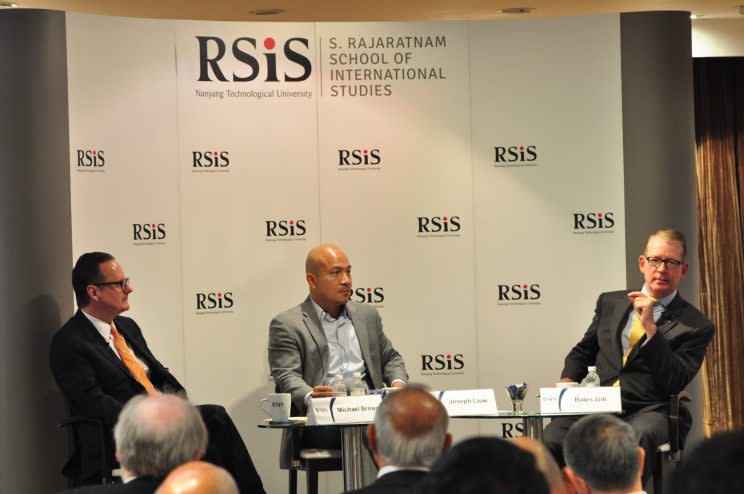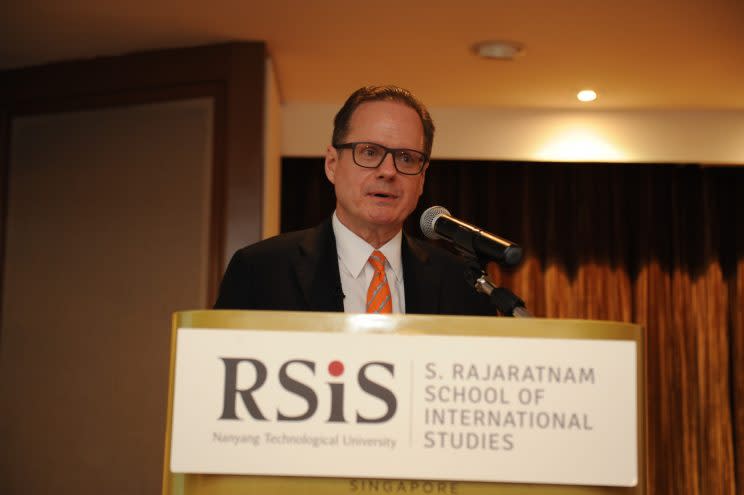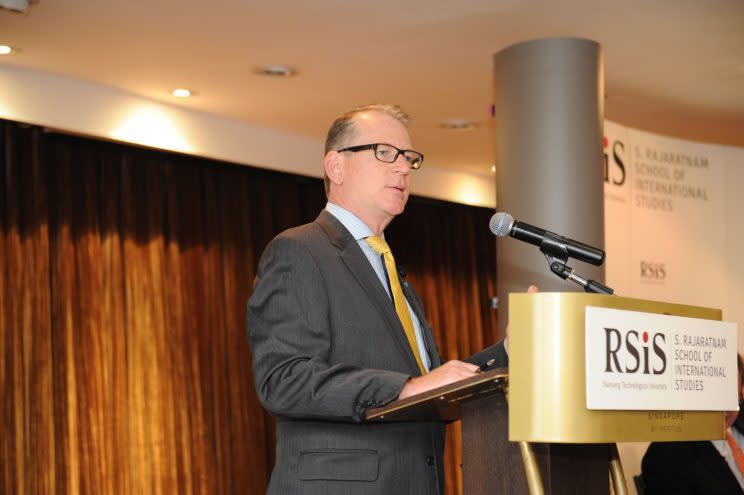Trump administration may face deep internal divisions: analysts

The range of personalities and differing philosophies of the designated key officials under the administration of US president-elect Donald Trump mean there is much potential for internal conflict, said two prominent academics.
For example, Secretary of State-designate Rex Tillerson and National Economic Council director-designate Gary Cohn are known to be in favour of free trade, while Trump has advocated for protectionist policies.
“Some people are already describing Trump’s team as a team of economic rivals,” noted Professor Michael Brown of the Elliott School of International Affairs at George Washington University.
Brown was speaking in Singapore on Thursday (12 January) at “US-Asia Relations: The Next Four Years and Beyond”, together with Professor Bates Gill of the Strategic and Defence Studies Centre at Australian National University.
The dialogue, attended by more than 150 people, was organised by the S. Rajaratnam School of International Studies (RSIS) and moderated by its dean Professor Joseph Liow.
On foreign affairs, Secretary of Defence-designate James Mattis and Central Intelligence Agency director-designate Mike Pompeo hold “classic hardline Republican views on Russia”, said Brown.
In contrast, Trump has said “remarkably glowing things” about Russian President Vladimir Putin, while his special advisor Steve Bannon is also known to be pro-Russia.
This creates a “real division” between Trump and several of his senior advisors, said Brown, adding that the incoming president will also have to deal with the views of Congress.
On domestic issues, Trump may also encounter stiff opposition. For instance, Senator Jeff Sessions of Alabama, Trump’s nomination for attorney general, has spoken against the president-elect’s proposed ban on Muslim immigrants.
Personnel maketh the administration

Brown noted that while Trump’s cabinet and ambassadorial appointments require Senate confirmation hearings, his White House appointments will be in place on the day of his inauguration.
He grouped the respective nominees, many of whom lack policymaking and executive branch experience, into “the good, the bad and the ugly”. Brown placed the likes of Tillerson and Mattis in the former group, which comprised individuals who are experienced and competent.
The middle group, whose credentials are in question, according to Brown, includes Trump’s son-in-law and real estate developer Jared Kushner, who will be a special advisor to the president.
Brown was scathing about the “ugly” nominees, who have taken “ugly positions that are contrary to American values and interests”. Of Steve Bannon, former head of alt-right platform Breitbart News, he said, “Bannon has been described as a sewer, but I think that’s unkind to sewers.”
Ties with China

One key policy area of the Trump administration will be relations with China. In response to a question from the audience, US foreign policy expert and China-watcher Gill said that pro-China voices in Washington are rare, given that “the general mood has turned increasingly sour”.
Gill noted the presence of hardliners in the administration such as senior economic advisor Peter Navarro, who authored a book called “Death By China”, and National Security Advisor-designate Michael Flynn.
Navarro has pinned the blame for much of America’s economic woes on China in his book while Flynn has openly linked countries like China and Russia with Islamic jihad, “putting them all in the basket of enemies of the US”, Gill said.
“Friends and allies in the region have a very important role to play…in dealing with a very unpredictable and volatile leadership in Washington,” added Gill.



